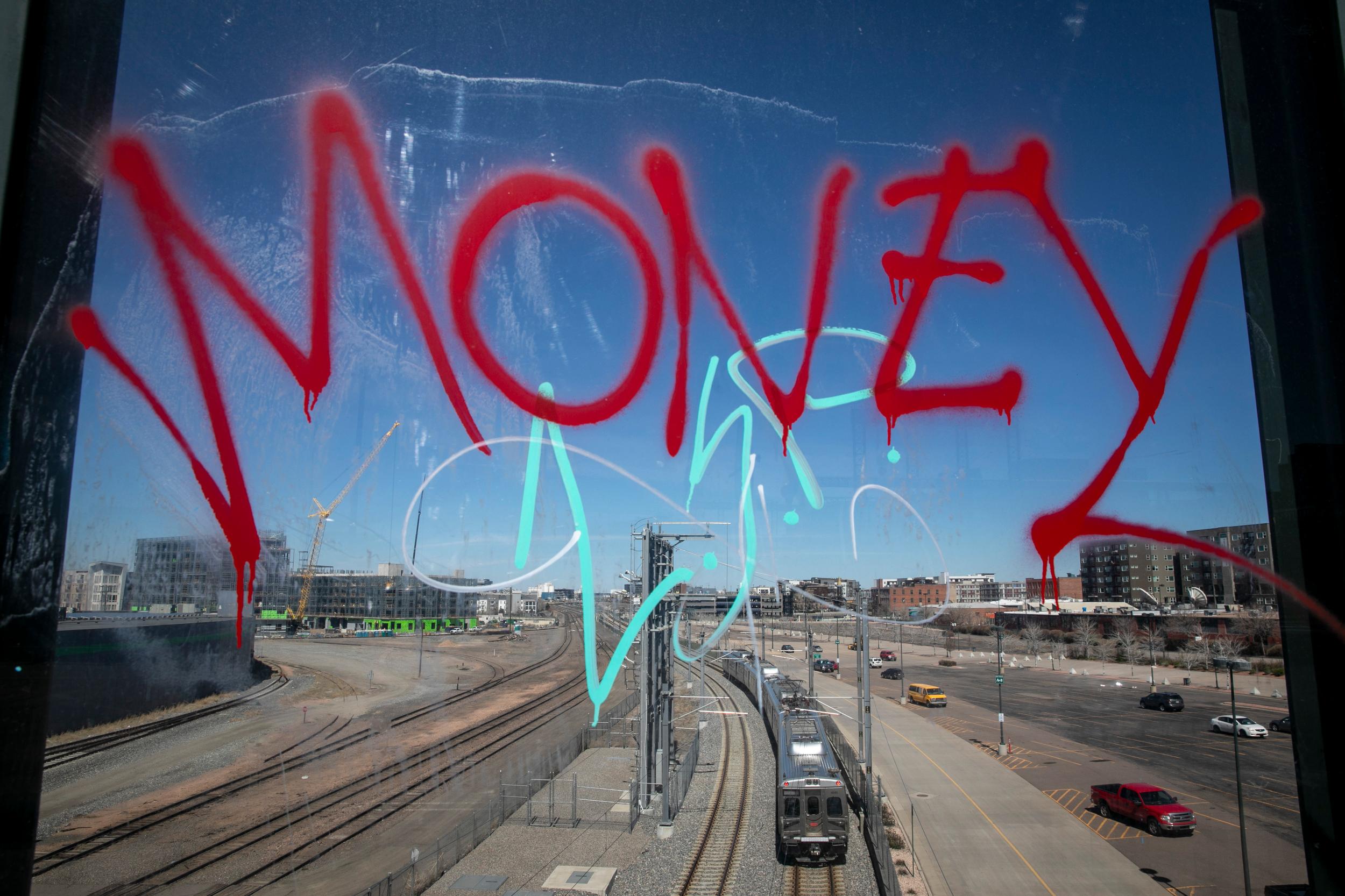
Gov. Jared Polis said Wednesday that the Regional Transportation District must follow through on its promise to build a rail line from Denver to Boulder and Longmont.
That’s in spite of RTD’s looming budget shortfall. The agency is now projecting a cumulative $1.3 billion hit to its budget through 2026, which will likely lead to deep and long-lasting cuts to service. Meanwhile, the most recent cost estimate for the train is about $1.5 billion.
“The train has to come. It was part of the 2004 ballot initiative,” Polis said, referencing the FasTracks vote that approved a tax increase for a massive rail expansion.
“It’s a binding vote of the people,” he said, adding that another vote would be required to alleviate RTD of its obligation to deliver the project.
RTD’s FasTracks program originally envisioned more than 120 miles of passenger rail lines to be built by 2017 for $4.7 billion. The Great Recession torpedoed sales tax revenues, and rising costs put projects years behind schedule. RTD landed federal grants, partnered with private businesses, and took out big loans to finish many of the lines. But now that debt is one big reason RTD is planning such deep cuts.
“Our financial position wasn't really fabulous to begin with,” board member Claudia Folska said this week. “The pandemic has taken it to a completely different level, but we've been struggling with this for a long time."
Polis, legislative leaders and RTD’s board chair Angie Rivera-Malpiede had gathered remotely Wednesday to announce a new independent accountability committee tasked with recommending solutions for RTD. Polis said the point of that group is not to question RTD’s past choices, but to rebuild trust with its constituents.
“There's a lot of angry taxpayers who have been paying for service since 2004, and the service is not on the horizon,” said Polis, who’s called on RTD for years to finish the line to Boulder.
“This is much more about effective governance with the resources that exist, not just asking RTD to accomplish the impossible,” added state Rep. Matt Gray, a Democrat from Broomfield.
RTD’s board members have been reticent to stop saving money toward unfinished FasTracks projects, as RTD staff have recommended, even as they’re faced with making permanent cuts of about 40 percent to existing train and bus lines next year.
But RTD’s balance between new capital projects and operating is out of whack, argued Ben Fried, a spokesman for TransitCenter, a research and advocacy organization.
“Borrowing to finance the FasTracks expansion was incredibly irresponsible,” he wrote in an email. “Insisting on building a new commuter rail line right now would only compound past recklessness.
Polis and other political leaders should focus instead on restoring RTD’s operating budget, he said. “That is where all the political energy needs to be channeled. More debt-fueled capital expansion is dead wrong right now,” he wrote.
RTD’s financial situation is “exceptionally weak” compared to other transit agencies, he said, all of which are dealing with similar pandemic-related issues.
“RTD cut service more and plans to maintain those cuts longer than any comparable agency,” Fried wrote.









